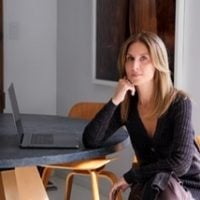Students stage ‘Free Palestine’ protest at the University of Manchester https://t.co/K47YLNYbK7
— Manchester News MEN (@MENnewsdesk) May 28, 2021
My hand trembled as I reached over to lock the car doors.
I could feel the nervous energy bubbling up within me. Although, I hadn’t realized that I was literally shaking.
I tried to calm myself down—breathing deeply.
We were trapped, though. Our car was being blocked in and surrounded by other cars.
I reminded myself that we were only driving down Wilshire Boulevard to pick up a pizza. We were listening to music, minding our own business; we’d done nothing wrong. I assured myself that nobody wanted to hurt us, that I was just overreacting—carrying on for nothing.
There was a small protest taking place in the middle of the thoroughfare. Protests like this one are common occurrences in Los Angeles. We drive by rallies and marches all the time.
My husband maneuvered into the outside lane with the passing traffic to avoid the progression. But our car hadn’t been allowed to pass like the others vehicles. Instead, we were barricaded on all four sides by screaming and honking protesters. They were hanging out from the sides of their cars, waving Palestinian flags.
Still, despite the angry eyes peering in through my window, I didn’t think this was intentional. I mean, we aren’t anyone important or anyone—really.
But then I heard the anti-Semitic slurs directed at us, and I saw the “Free Palestine” banners. It took several minutes for me to equate our presence to our religion and then to being despised.
I crumbled right there in the passenger seat—tears and all. My husband and I didn’t say one word, not even to each other.
It didn’t matter how liberal I leaned in my thinking, or what feelings I have toward the radical right government in Israel. The men wearing kufiya scarfs beside my car window didn’t care about my heart. They only knew from the way I looked that I am of Jewish descent.
They weren’t interested in our ideals or our hopes for peace—they wanted us to hurt.
I thought of the words my friend Anya spoke years ago. She had come to the United States from Russia in the 1990s.
“People know what they hate,” she told me when I questioned her on coming here alone at 22.
I remember replying, “Have faith, people know what they love too.”
She laughed and said, “Yes, but they don’t love Jews.”
I thought, maybe, I should have listened to Anya. I’d be prepared for the rage directed at us if I had. Yet, deep down, I knew it wouldn’t have made a difference.
I fill my days with Buddhist practices and cry out for Mother Mary and Jesus whenever I feel like it. I would never be ready for such a moment. Some might say I’d been naive all these years.
I’d say I wanted to focus on all the good in the world instead.
But, if I’m honest, it’s more that I’ve never wanted to believe this scenario could happen in the light of day—not in Los Angeles, not anywhere.
But racial and religious intolerance exists and always has—here and everywhere. This is a dark reality.
I sat there in the car fighting my impulse to yell obscenities at those who were surrounding us. I thought about retaliating and fighting back.
Yet, when push came to shove, I didn’t have anything horrible or profound to scream in return. “Please, stop,” was my only battle cry.
I realized I didn’t know those people well enough to say anything—good, bad, or ugly. We didn’t know each other.
I questioned why we sum each other up in narratives passed down to us. Why is it assumed that all people of the same religion or nationality are of the same persuasions?
It all seemed silly, yet I could see these beliefs were real for many there that day. Their views had gotten too extreme to be challenged, and their behavior matched their frustrations.
All I could think of while the cars honked and the people hated on us were the songs I sang as a little girl. We’d sing on Friday nights to welcome the Shekinah, the Sabbath bride, into our lives. Her energy would fill my body with hope and light. The Shekinah, as it is told, holds all our tears and restores us all with her bounty.
I quietly sang my childhood songs to remind myself of all the beauty that exists in this world. I wasn’t ignoring what was going on around me, and I wasn’t in denial either. I just didn’t want to fall into the spiral of hate that was ensuing outside of our car.
By pure chance and some reckless driving, we made it out from the blockade and collected our pizza. We heard a kosher restaurant and their patrons were brutally attacked shortly afterward. We learned that Pro-Palestinian marches have spurred anti-Jewish protests in New York, London, Milan, Brussels, and Toronto as well.
I don’t have the answers to what is right or what is wrong. I only know what I witnessed: extreme thinking is intertwined with hatred.
If we truly want freedom and peace, then we must be careful of the rhetoric we promote and always challenge the ideas we’ve held—sometimes for generations.
“An eye for an eye makes the whole world blind.” ~ Ghandi
~










Read 29 comments and reply